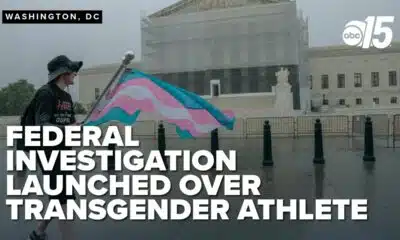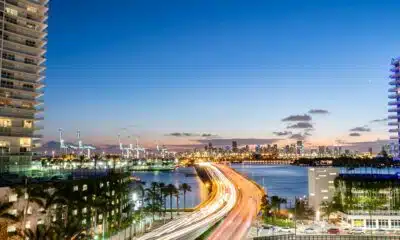Mississippi Today
Who’s opposed to Mississippi Medicaid expansion and why?
Who’s opposed to Mississippi Medicaid expansion and why?
Note: This article is part of Mississippi Today’s ongoing Mississippi Health Care Crisis project.Read more about the project by clicking here.
While running for governor in 2019, then-Lt. Gov. Tate Reeves was quizzed at a Capitol Press Corps luncheon whether his opposition to expanding Medicaid coverage to working-poor Mississippians was softening.
"I am opposed to Obamacare expansion in Mississippi. I am opposed to Obamacare expansion in Mississippi. I am opposed to Obamacare expansion in Mississippi. I don't know how many ways I can explain this to y'all," Reeves said.
Reeves' fellow Republican House Speaker Philip Gunn has frequently given equally deep and erudite explanations of his steadfast opposition to accepting $1 billion a year in federal money to help the working poor and Mississippi's distressed hospitals.
"From what I know about it, we cannot afford it," Gunn said tersely to questions as the 2021 legislative session ended, obviously not wanting to discuss the issue further.
For more than a decade, despite most other states expanding Medicaid and despite hospitals, doctors, economists and experts saying it would be a net benefit to the poorest, sickest, most uninsured and most federally dependent state in the country, most of Mississippi's top elected leaders have refused the offer.
As some hospitals across the state close their doors and others struggle on the brink of collapse — even as the state budget sees record gains from other federal spending — Mississippi leaders' recalcitrance growingly appears more political than pragmatic.
Reeves and Gunn, who can block expansion from their posts, remain steadfast in their opposition. Republican Lt. Gov. Delbert Hosemann has said he's open to the idea, as are a small but growing number of legislative Republicans. But Hosemann avoids even saying the words "Medicaid expansion" and hasn't pressed his colleagues on full expansion. He has, unsuccessfully, pushed for expanding postpartum Medicaid coverage for mothers.
Q&A: What is Medicaid expansion, really?
Notably, all three top leaders declined interviews or comments for this story. Medicaid expansion hasn't gotten a real hearing with the Legislature in years, even as the federal government has tried to sweeten the deal and counter arguments against expansion.
At times, including recently, some state leaders have said they would instead prefer people to have good jobs that provide private insurance. But this has proved elusive, with Mississippi seeing slow job growth, the lowest median income in the nation and among the highest rates of uninsured people.
Mississippi Today compiled a list of the main arguments against Medicaid expansion that opponents have given over the last decade, with counterpoints from proponents:
We can't afford it/it will tank the state budget
"I don't see Medicaid expansion as something that is beneficial to the state of Mississippi," Gunn said in 2021. "I just don't think the taxpayers can afford it. That is what it boils down to is the taxpayers. It is their money. I just don't have the taxpayers calling saying we want you to raise taxes so we can expand Medicaid."
So far, Medicaid expansion hasn't tanked any states' budgets, nor have any been forced to raise taxes to cover ACA Medicaid expansion.
Numerous studies, including those by Mississippi's state economists, say the state — including government coffers — would see a net economic benefit, including growth in GDP and population and the creation of thousands of jobs.
Studies in Arkansas, Kentucky, Louisiana, Michigan, Montana and Virginia showed the states saw a net reduction of more than 4% in spending on their traditional Medicaid programs after expansion. Louisiana's Medicaid expansion in 2016 brought a 33% reduction in uncompensated care costs for hospitals, including a 55% reduction for rural hospitals.
READ MORE: Here’s what experts say about expanding Medicaid in Mississippi
The federal government will quit paying its share
"For us to enter into an expansion program would be a fools errand," then-Gov. Phil Bryant said in 2014. "I mean, here we would be saying to 300,000 Mississippians, 'We're going to provide Medicaid coverage to you,' and then the federal government through Congress or through the Senate, would do away with or alter the Affordable Care Act, and then we have no way to pay that."
But the Affordable Care Act, including Medicaid expansion, has survived through three presidents, including Republican Donald Trump who wanted to do away with it, and through multiple congresses, including two under Republican control of both chambers. It has survived numerous court challenges (Mississippi has joined in at least a couple of those).
Mississippi leaders made the same argument to postpone adopting the Medicaid program when it was created in the 1960s. It was one of the last states to do so, in 1969. Arguments that the feds would stop funding it and leave Mississippi in the lurch have proved erroneous, and the Magnolia State has enjoyed the highest rate of federal reimbursement for its existing Medicaid program for many years.
It's subsidizing people who won't work/it's more welfare
"We believe all able-bodied folks ought to get off the couch and go to work," state Agriculture Commissioner Andy Gipson, a longtime former lawmaker, said at the Neshoba County Fair in July, mirroring comments many other leaders have made over years. "This is why we oppose Medicaid expansion."
By its definition, covering people who make up to 138% of poverty level income, Medicaid expansion is aimed at helping the working poor.
"These are people that are working," said Tim Moore, president of the Mississippi Hospital Association. "By definition, to be at 138% above poverty, you have to have income from somewhere. In fact these are people that are often working multiple jobs, but still don't have the discretionary income to afford the high cost of premiums."
"Medicaid expansion is not about putting people on the welfare rolls," state Insurance Commissioner Mike Chaney said last year. "This is about expanding health care availability to the poor, the disabled, the folks that fall through the cracks, that are not able to get on the Affordable Care Act."
READ MORE: How Medicaid expansion could have saved Tim’s leg and changed his life
It would drive up private insurance costs, especially if hospitals help pay for expansion
"If hospitals are going to pay for it, that means that your cost when you go to the hospital is going to go up," Reeves said during a 2019 gubernatorial election debate, referring to Mississippi hospitals offering to pay the state's share of expansion. "If you have private insurance, that means that your insurance rates are going to go up."
Others over the years have warned that expansion in general would drive up private insurance premiums.
But driving down uncompensated care costs for Mississippi hospitals, which has hovered around $600 million a year (lowered temporarily a bit recently because of federal COVID-19 relief money) would allow hospitals to lower prices, Moore said. One recent study said expansion would cut Mississippi hospitals' uncompensated care by an average of $251.6 million a year from 2020-2030. The same study projects private premiums paid each year would also fall by $52.6 million over the same period.
"Treating people with no coverage forces the costs onto everyone else," Moore said. "Plus, if people have coverage, they get care in a more timely, more efficient manner. You have less chronic problems, less higher-cost problems."
As for hospitals paying the state's share of expansion, as MHA proposed with the MS Cares plan in 2019, Moore said that's a moot point now, because Mississippi hospitals are struggling so bad financially now that they couldn't afford to do it.
Medicaid is broken, full of fraud and provides poor health outcomes
When Mississippi lawmakers in 2017 passed an act aimed at preventing fraud in Medicaid and welfare, one concern cited during debate was that there were dead people on Medicaid rolls.
"Are you talking about dead people on the rolls of Medicaid?" one lawmaker asked then-Senate Medicaid Chairman Brice Wiggins, R-Pascagoula. He responded: "I am talking about everybody, yes. It doesn’t matter if it is dead people. It doesn’t matter if it is people double dipping. They need to be following the law.”
Medicaid doesn't provide money to beneficiaries. It provides health care, and money goes to providers. As several lawmakers pointed out at the time, it would be hard for dead people to be receiving health care.
Many, including some state politicians, appear to conflate Medicaid with "welfare." Medicaid is a state-federal health insurance program that, in Mississippi currently, is available only to the disabled, elderly poor people, poor pregnant women and poor children. An able-bodied adult cannot simply be poor and qualify for Medicaid.
Mississippi has been plagued with fraud, corruption or misspending in Medicaid, welfare and other government programs. But this has been mostly committed by politicians, bureaucrats, business people, or large corporations. Beneficiary fraud in all these programs would appear to be a smaller problem.
It is true that Mississippi Medicaid beneficiaries have very poor health outcomes. But given that a large portion of qualifying beneficiaries are very sickly and poor to begin with, this would appear self-fulfilling prophecy. The aim of expansion is to cover the healthier, working poor and provide more preventive care.
"If you start early and provide health care, the outcome is better," Moore said. "If you put off treating a condition, it gets worse. Diabetes is an example. You have an individual that doesn't have health care coverage and they have neuropathy but put off treatment. They get a hole in the foot that gets infected. Then they lose a leg. Or they lose eyesight or have renal failure. Then all of a sudden they have a disability and can't work, and they have to be taken care of. But we could have prevented it, and we could have managed the cost much better."
This article first appeared on Mississippi Today and is republished here under a Creative Commons license.
Mississippi Today
Trump nominates Baxter Kruger, Scott Leary for Mississippi U.S. attorney posts
President Donald Trump on Tuesday nominated Baxter Kruger to become Mississippi’s new U.S. attorney in the Southern District and Scott Leary to become U.S. attorney for the Northern District.
The two nominations will head to the U.S. Senate for consideration. If confirmed, the two will oversee federal criminal prosecutions and investigations in the state.
Kruger graduated from the Mississippi College School of Law in 2015 and was previously an assistant U.S. attorney for the Southern District. He is currently the director of the Mississippi Office of Homeland Security.
Sean Tindell, the Mississippi Department of Public Safety commissioner, oversees the state’s Homeland Security Office. He congratulated Kruger on social media and praised his leadership at the agency.
“Thank you for your outstanding leadership at the Mississippi Office of Homeland Security and for your dedicated service to our state,” Tindell wrote. “Your hard work and commitment have not gone unnoticed and this nomination is a testament to that!”
Leary graduated from the University of Mississippi School of Law, and he has been a federal prosecutor for most of his career.
He worked for the U.S. Attorney’s Office in the Western District of Tennessee in Memphis from 2002 to 2008. Afterward, he worked at the U.S. Attorney’s Office for the Northern District of Mississippi in Oxford, where he is currently employed.
Leary told Mississippi Today that he is honored to be nominated for the position, and he looks forward to the Senate confirmation process.
This article first appeared on Mississippi Today and is republished here under a Creative Commons Attribution-NoDerivatives 4.0 International License.
The post Trump nominates Baxter Kruger, Scott Leary for Mississippi U.S. attorney posts appeared first on mississippitoday.org
Note: The following A.I. based commentary is not part of the original article, reproduced above, but is offered in the hopes that it will promote greater media literacy and critical thinking, by making any potential bias more visible to the reader –Staff Editor.
Political Bias Rating: Centrist
This article presents a straightforward news report on President Donald Trump’s nominations of Baxter Kruger and Scott Leary for U.S. attorney positions in Mississippi. It focuses on factual details about their backgrounds, qualifications, and official responses without employing loaded language or framing that favors a particular ideological perspective. The tone is neutral, with quotes and descriptions that serve to inform rather than persuade. While it reports on a political appointment by a Republican president, the coverage remains balanced and refrains from editorializing, thus adhering to neutral, factual reporting.
Mississippi Today
Jackson’s performing arts venue Thalia Mara Hall is now open
After more than 10 months closed due to mold, asbestos and issues with the air conditioning system, Thalia Mara Hall has officially reopened.
Outgoing Mayor Chokwe A. Lumumba announced the reopening of Thalia Mara Hall during his final press conference held Monday on the arts venue’s steps.
“Today marks what we view as a full circle moment, rejoicing in the iconic space where community has come together for decades in the city of Jackson,” Lumumba said. “Thalia Mara has always been more than a venue. It has been a gathering place for people in the city of Jackson. From its first class ballet performances to gospel concerts, Thalia Mara Hall has been the backdrop for our city’s rich cultural history.”
Thalia Mara Hall closed last August after mold was found in parts of the building. The issues compounded from there, with malfunctioning HVAC systems and asbestos remediation. On June 6, the Mississippi State Fire Marshal’s Office announced that Thalia Mara Hall had finally passed inspection.
“We’re not only excited to have overcome many of the challenges that led to it being shuttered for a period of time,” Lumumba said. “We are hopeful for the future of this auditorium, that it may be able to provide a more up-to-date experience for residents, inviting shows that people are able to see across the world, bringing them here to Jackson. So this is an investment in the future.”
In total, Emad Al-Turk, a city contracted engineer and owner of Al-Turk Planning, estimates that $5 million in city and state funds went into bringing Thalia Mara Hall up to code.
The venue still has work to be completed, including reinstalling the fire curtain. The beam in which the fire curtain will be anchored has asbestos in it, so it will have to be remediated. In addition, a second air-conditioning chiller needs to be installed to properly cool the building. Until it’s installed, which could take months, Thalia Mara Hall will be operating at a lower seating capacity of about 800.
“Primarily because of the heat,” Al-Turk said. “The air conditioning would not be sufficient to actually accommodate the 2,000 people at full capacity, but starting in the fall, that should not be a problem.”
Al-Turk said the calendar is open for the city to begin booking events, though none have been scheduled for July.
“We’re very proud,” he said. “This took a little bit longer than what we anticipated, but we had probably seven or eight different contractors we had to coordinate with and all of them did a superb job to get us where we are today.”
This article first appeared on Mississippi Today and is republished here under a Creative Commons Attribution-NoDerivatives 4.0 International License.
The post Jackson’s performing arts venue Thalia Mara Hall is now open appeared first on mississippitoday.org
Note: The following A.I. based commentary is not part of the original article, reproduced above, but is offered in the hopes that it will promote greater media literacy and critical thinking, by making any potential bias more visible to the reader –Staff Editor.
Political Bias Rating: Centrist
The article presents a straightforward report on the reopening of Thalia Mara Hall in Jackson, focusing on facts and statements from city officials without promoting any ideological viewpoint. The tone is neutral and positive, emphasizing the community and cultural significance of the venue while detailing the challenges overcome during renovations. The coverage centers on public investment and future prospects, without partisan framing or editorializing. While quotes from Mayor Lumumba and a city engineer highlight optimism and civic pride, the article maintains balanced, factual reporting rather than advancing a political agenda.
Mississippi Today
‘Hurdles waiting in the shadows’: Lumumba reflects on challenges and triumphs on final day as Jackson mayor
On his last day as mayor of Jackson, Chokwe Antar Lumumba recounted accomplishments, praised his executive team and said he has no plans to seek office again.
He spoke during a press conference outside of the city’s Thalia Mara Hall, which was recently cleared for reopening after nearly a year of remediation. The briefing, meant to give media members a peek inside the downtown theater, marked one of Lumumba’s final forays as mayor.
Longtime state Sen. John Horhn — who defeated Lumumba in the Democratic primary runoff — will be inaugurated as mayor Tuesday, but Lumumba won’t be present. Not for any contentious reason, the 42-year-old mayor noted, but because he returns to his private law practice Tuesday.
“I’ve got to work now, y’all,” Lumumba said. “I’ve got a job.”
Thalia Mara Hall’s presumptive comeback was a fitting end for Lumumba, who pledged to make Jackson the most radical city in America but instead spent much of his eight years in office parrying one emergency after another. The auditorium was built in 1968 and closed nearly 11 months ago after workers found mold caused by a faulty HVAC system – on top of broken elevators, fire safety concerns and vandalism.
“This job is a fast-pitched sport,” Lumumba said. “There’s an abundance of challenges that have to be addressed, and it seems like the moment that you’ve gotten over one hurdle, there’s another one that is waiting in the shadows.”
Outside the theater Monday, Lumumba reflected on the high points of his leadership instead of the many crises — some seemingly self-inflicted — he faced as mayor.
He presided over the city during the coronavirus pandemic and the rise in crime it brought, but also the one-two punch of the 2021 and 2022 water crises, exacerbated by the city’s mismanagement of its water plants, and the 18-day pause in trash pickup spurred by Lumumba’s contentious negotiations with the city council in 2023.
Then in 2024, Lumumba was indicted alongside other city and county officials in a sweeping federal corruption probe targeting the proposed development of a hotel across from the city’s convention center, a project that has remained stalled in a 20-year saga of failed bids and political consternation.
Slated for trial next year, Lumumba has repeatedly maintained his innocence.
The city’s youngest mayor also brought some victories to Jackson, particularly in his first year in office. In 2017, he ended a furlough of city employees and worked with then-Gov. Phil Bryant to avoid a state takeover of Jackson Public Schools. In 2019, the city successfully sued German engineering firm Siemens and its local contractors for $89 million over botched work installing the city’s water-sewer billing infrastructure.
“I think that that was a pivotal moment to say that this city is going to hold people responsible for the work that they do,” Lumumba said.
Lumumba had more time than any other mayor to usher in the 1% sales tax, which residents approved in 2014 to fund infrastructure improvements.
“We paved 144 streets,” he said. “There are residents that still are waiting on their roads to be repaved. And you don’t really feel it until it’s your street that gets repaved, but that is a significant undertaking.”
And under his administration, crime has fallen dramatically recently, with homicides cut by a third and shootings cut in half in the last year.
Lumumba was first elected in 2017 after defeating Tony Yarber, a business-friendly mayor who faced his own scandals as mayor. A criminal justice attorney, Lumumba said he never planned to seek office until the stunning death of his father, Chokwe Lumumba Sr., eight months into his first term as mayor in 2014.
“I can say without reservation, and unequivocally, we remember where we started. We are in a much better position than we started,” Lumumba said.
Lumumba said he has sat down with Horhn in recent months, answered questions “as extensively as I could,” and promised to remain reachable to the new mayor.
This article first appeared on Mississippi Today and is republished here under a Creative Commons Attribution-NoDerivatives 4.0 International License.
The post 'Hurdles waiting in the shadows': Lumumba reflects on challenges and triumphs on final day as Jackson mayor appeared first on mississippitoday.org
Note: The following A.I. based commentary is not part of the original article, reproduced above, but is offered in the hopes that it will promote greater media literacy and critical thinking, by making any potential bias more visible to the reader –Staff Editor.
Political Bias Rating: Center-Left
The article reports on outgoing Jackson Mayor Chokwe Antar Lumumba’s reflections without overt editorializing but subtly frames his tenure within progressive contexts, emphasizing his self-described goal to make Jackson “the most radical city in America.” The piece highlights his accomplishments alongside challenges, including public crises and a federal indictment, maintaining a factual tone yet noting contentious moments like labor disputes and governance issues. While it avoids partisan rhetoric, the focus on social justice efforts, infrastructure investment, and crime reduction, as well as positive framing of Lumumba’s achievements, aligns with a center-left perspective that values progressive governance and accountability.
-
News from the South - Georgia News Feed6 days ago
Are you addicted to ‘fridge cigarettes’? Here’s what the Gen Z term means
-
News from the South - Oklahoma News Feed7 days ago
RFK Jr. Brings MAHA to Oklahoma
-
Local News7 days ago
St. Martin trio becomes the first females in Mississippi to sign Flag Football Scholarships
-
News from the South - South Carolina News Feed6 days ago
Federal investigation launched into Minnesota after transgender athlete leads team to championship
-
The Center Square5 days ago
U.S. Senate prepares for passage of One Big Beautiful Bill Act | National
-
News from the South - Tennessee News Feed5 days ago
Democratic resolution to block military action in Iran fails to advance in US Senate
-
News from the South - Florida News Feed7 days ago
US Supreme Court allows SC to remove Planned Parenthood from list of Medicaid providers
-
News from the South - Virginia News Feed7 days ago
‘Hallowed ground, desecrated’: ICE sweeps at Chesterfield court draw fierce backlash














































